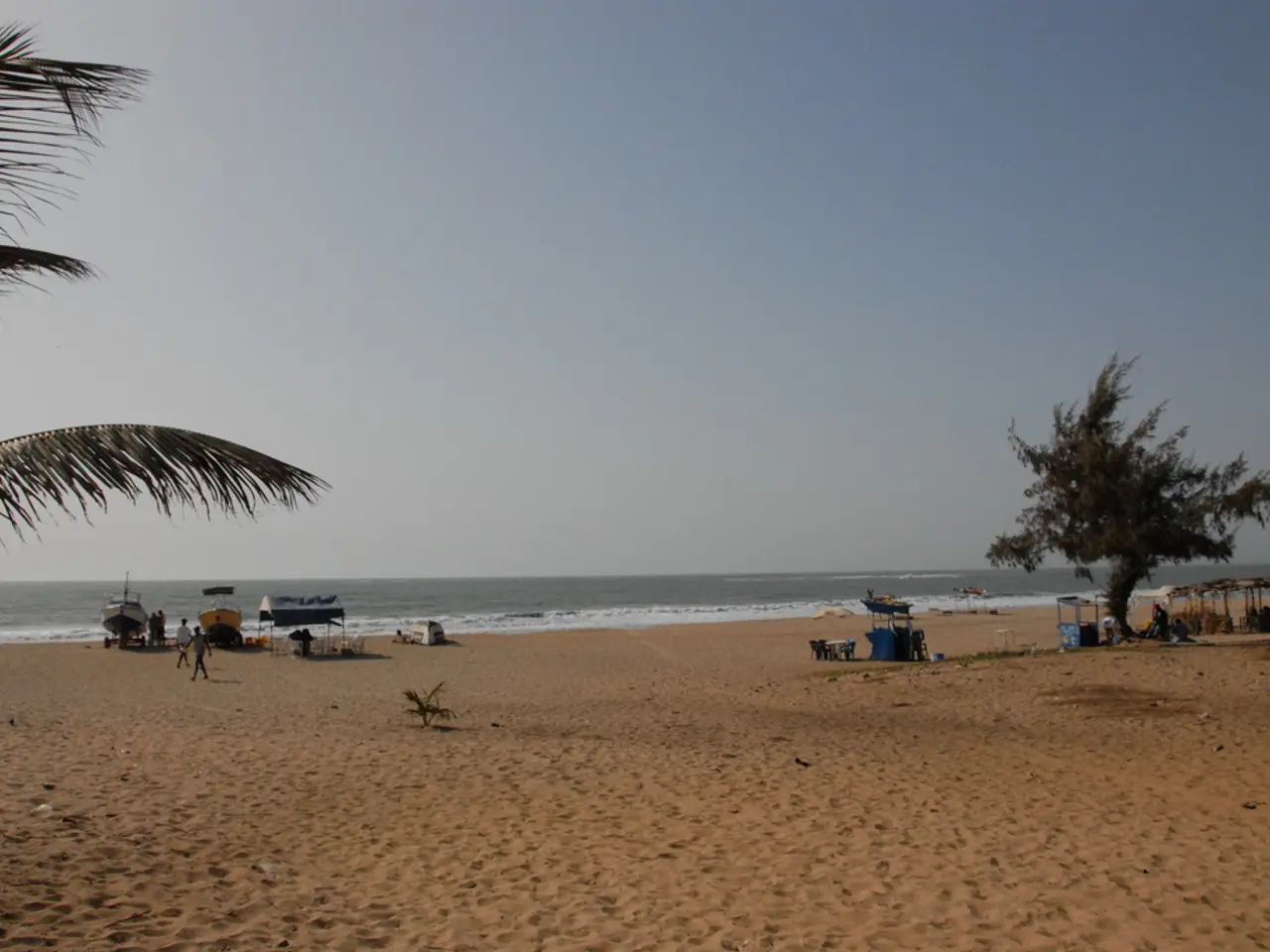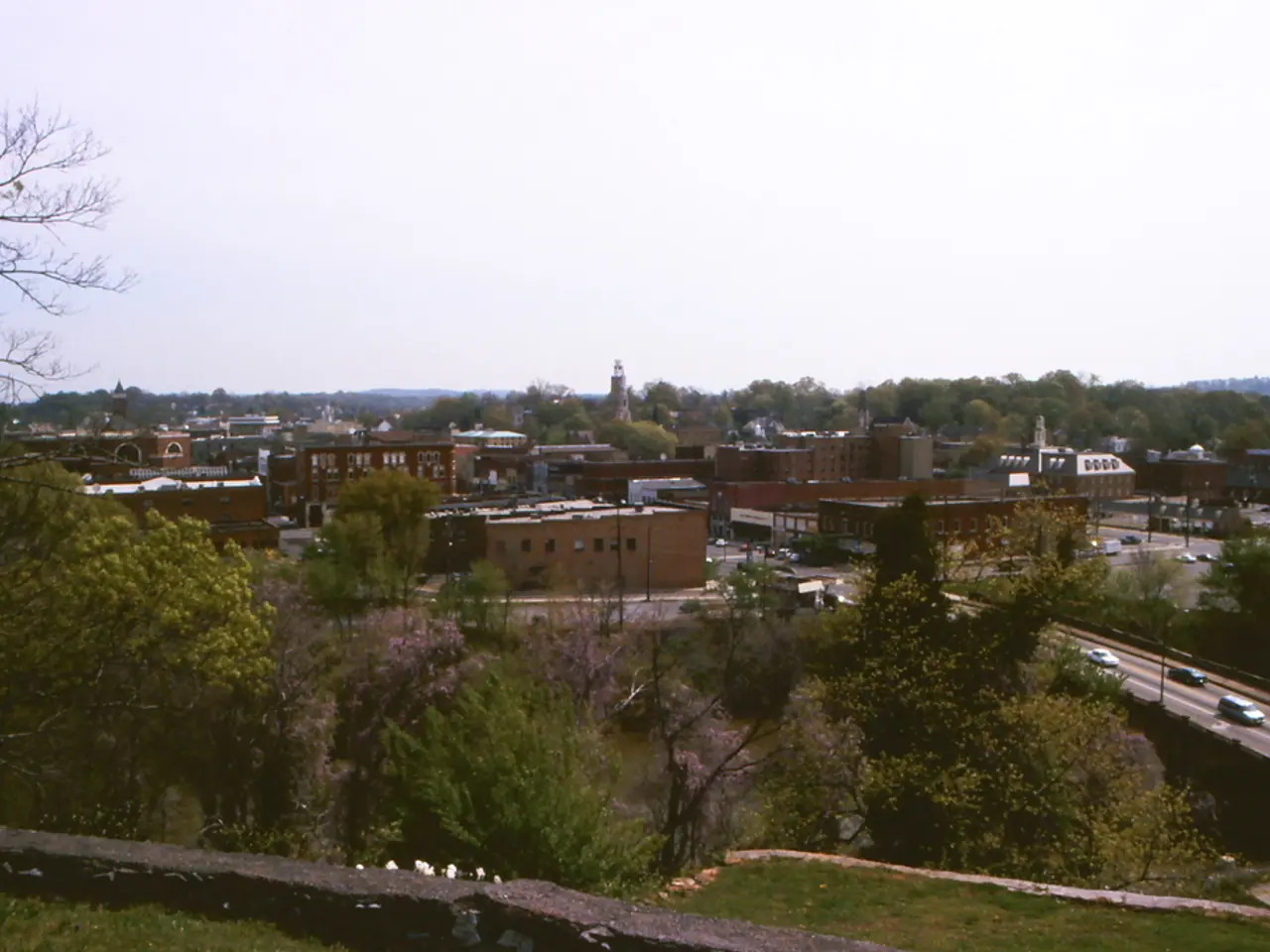Important Information for Tourists: Florida's New Beach Vacation Laws to Consider Before Your Trip
Florida's Senate Bill 1622, signed into law by Governor Ron DeSantis on June 24, 2025, is set to revolutionise public beach access and tourism in the sunshine state. The bill repeals a 2018 law that had restricted local governments from affirming public recreational use of the dry sand areas of private beaches without undergoing a complex and costly judicial process[1][2][4].
The new legislation returns authority to local governments to recognise recreational customary use of beaches, such as walking, fishing, sunbathing, and swimming[1][2][4]. This move enables cities and counties to more easily affirm public access, particularly in areas like Walton County where locals had traditionally accessed beaches for generations but were previously blocked by private property owners[3][4].
The bill is expected to support tourism, particularly in coastal communities such as Walton County, which has 26 miles of coastline but had limited accessible beach miles due to previous restrictions[4]. Easier public access encourages more visitors and supports local economies dependent on tourism.
Moreover, the bill allows the Florida Department of Environmental Protection to proceed with beach restoration projects more efficiently in critically eroded areas without needing to secure assessments from private Gulf-front landowners[1][2]. This means restoration efforts can begin quickly without costly litigation, preserving beaches that are vital for both residents and tourists.
While expanding public access, the legislation includes provisions to protect private property rights and clarifies that the state is not expanding its ownership claims beyond what is constitutionally and legally recognised[4][2].
Governor DeSantis emphasises that Senate Bill 1622 aims to restore local control and ensure public beaches remain accessible for both Floridians and visitors. The law, while affecting Walton County specifically, could influence more Florida beaches to remain open to the public.
In Walton County, it is advisable to check with hotels or vacation rentals about the nearest publicly accessible beach, especially in counties where private homes line much of the coast. Walton County had a 2016 county ordinance allowing officials to designate recreational access of dry sand beach areas, but the 2018 law made it difficult to approve customary use[4].
Customary use includes recreational activities like swimming, sunbathing, fishing, and walking on some beaches. Of Walton County's 26 miles of beaches, only 9 miles were protected as public due to the 2018 law. However, with the new bill in place, more beaches can now be enjoyed by locals and tourists alike.
Whether exploring Florida's wild panhandle or the highest rated Florida Keys beaches, more sun and sand can be expected due to this new law. The bill not only enhances public recreational opportunities but also supports the tourism sector by maintaining open and accessible beaches[1][2][3].
Travel guides for Florida might now highlight increased public access to beaches, particularly in Walton County, thanks to Senate Bill 1622. This legislation, affecting policy-and-legislation and politics, aims to make general-news by supporting tourism in coastal communities while upholding private property rights.





